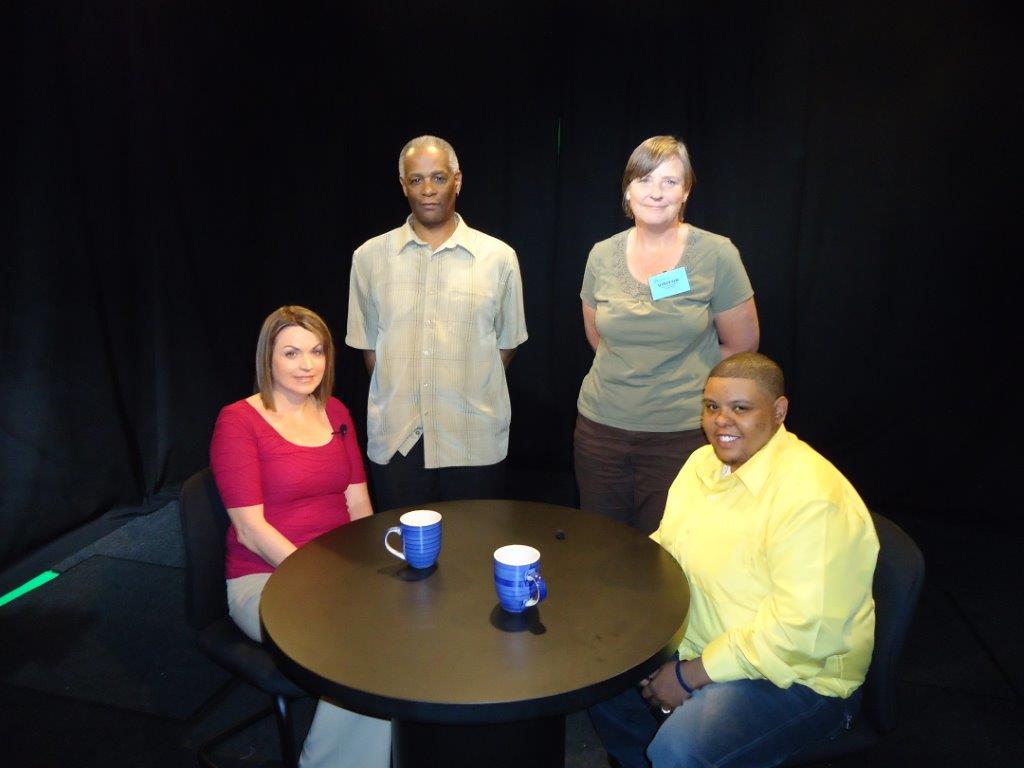You are here
 The San Fernando Valley Community Mental Health Center, Inc. has a well-established Client Run Center (CRC) and Wellness Center. Among the recovery goals of the CRC, one is a strong advocacy component which functions to decrease the stigma of mental illness through a variety of community activities. The CRC has a Recovery Panel that presents to community providers, universities, corporations, legislators and their staffers, law enforcement, and clergymen.
The San Fernando Valley Community Mental Health Center, Inc. has a well-established Client Run Center (CRC) and Wellness Center. Among the recovery goals of the CRC, one is a strong advocacy component which functions to decrease the stigma of mental illness through a variety of community activities. The CRC has a Recovery Panel that presents to community providers, universities, corporations, legislators and their staffers, law enforcement, and clergymen.
The CRC offers a Los Angeles County Certified Peer Counselor Training Program, which serves as a gateway to employment in the mental health field for people with lived experience. In collaboration with the Los Angeles County Department of Mental Health, the CRC has developed a Radio and TV project to further demystify and reduce the stigma of persons with mental illness that has such damaging effects.
In February of this year, the CRC began working with the LAC-DMH public affairs director Kathleen Piche, LCSW, on two anti-stigma projects that feature stories of recovery. One is a radio show called Free your Minds Project and the other is a television program featured on LA City Cable called Meeting of the Minds. In April, three CRC staff participated in both programs. As a result of Tara Christian and Clair Merrill, CPRP, taking part in the radio project that was aired on KFWB 980 AM, a listener came to the CRC to inquire about Tara because he was inspired by what she said and he decided to seek help. The dynamic television show, Meeting of the Minds, was broadcast daily throughout May for Mental Health Month and featured speakers in live interviews. The following is a sample interview with Antoine (61 years old) from the TV program:
Q. After living on the street and abusing drugs for many years, what was the turning point for you?
I had been in prison 3 times and was finally referred to the prison psychiatrist. I received medication and therapy because I was so depressed and hearing voices - I learned I had been self-medicating for years by using drugs. I realized there was still hope for me, when they suggested early release if I went to treatment.
Q. How did you finally get mental health treatment, and where did you get it?
I was referred to Cornerstone (a Center homeless program). I started dual recovery groups and discovered I had skills and talents. I received housing, as well as peer support and encouragement from staff who believed in me. After they told me about the Client Run Center, I attended the peer counseling class and immediately felt I could give back. Now I work in the job bank, and I am in college full time to become an addiction counselor; my goal is to earn a BA.
Q. What is the most important part of your recovery?
The support I have at CRC, going to church, school, and reconnecting with my family whose support I finally have again.
Q. How important is helping others in your recovery?
I feel if I found hope and got a fresh start, then I can help others too. That’s why I became a peer counselor and why I am going to school – to help others get back on track.
Q. What does hope mean to you?
Knowing that with the right support you can do and accomplish more, and set new goals to detract from any inclination to give up.
These shows will also be aired on the LA City Cable channel over a period of a few months and will go a long way toward combating stigma by putting a personal face and an inspiring story out there for all to see. The media exposure of recovery stories like these will change the perception of mental illness and reduce stigma.



